20th, September 2019 | Oh Jinna
Eye Exams 101: A Quick Guide to Eye Exams and its Importance
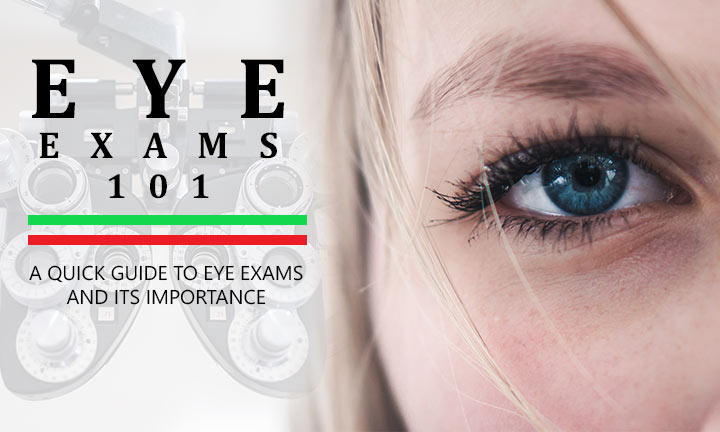
When was the last time that you had an eye exam? What can we expect from an eye exam? At what age should one go and have their eyes checked? Are eye exams painful? In this article, you’ll be treated to a quick guide to eye exams and its key advantages.
Eye Exams 101
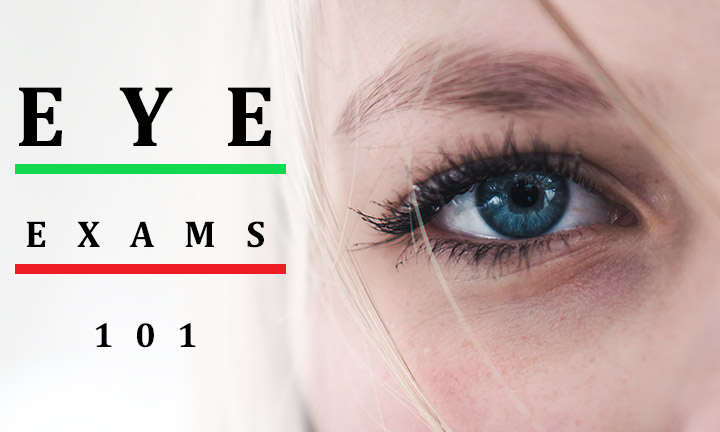
The health of our eyes is a crucial factor to living a healthy and a full life. That means that we should visit an eye doctor from time to time, while maintaining a healthy set of habits.
Read the article below to get a glimpse of what happens during an eye examination.
Visiting a licensed eye doctor such as an optometrist or an ophthalmologist is essential to keeping our vision crisp and clear. Going through an eye exam can save your eyesight from any impending problem, or worse, a disease that eventually leads to complete vision loss.
In a study conducted by the Investigative Ophthalmology and Visual Science last March 2013, approximately 827 million Asians will be needing eye care services by 2030.
Early detection is always better than having to go to surgery to cure an ailment. This does not only save us from unnecessary expenses, but it also prevents eye-problems from becoming worse.
Eye Exams and Eye Screenings: The Difference
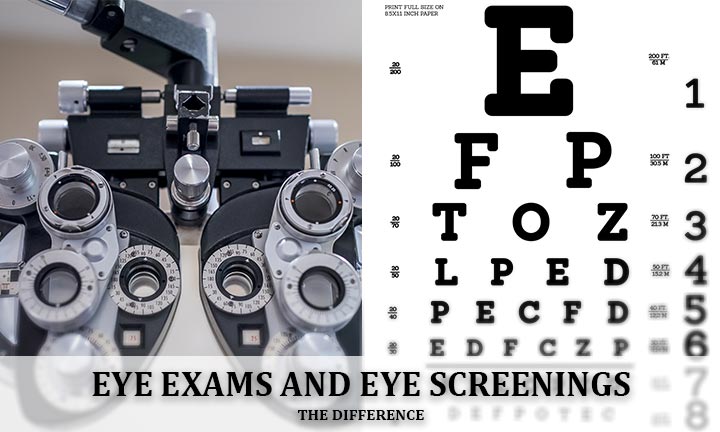
There’s a clear difference between an eye exam and an eye screening.
Eye Screenings, or commonly known as Vision Screenings, usually measure your visual acuity (sharpness of your vision), and it often takes about a few minutes to complete.
Although some licensed professionals conduct a vision screening, often times, volunteers or non-professionals conduct a vision screening to patients to complete the process quickly in the cheapest way possible.
Also, if you fail a vision screening, you will eventually be referred to an eye care professional to get examined and diagnosed.
Vision screenings are generally harmless, but if you want a comprehensive check-up, it is advised that you visit a licensed provider.
Meanwhile, an eye doctor is the person responsible to conduct a thorough Eye Examination. It can take from 45 minutes to an hour and a half to complete an eye exam, depending on the patient.
Through an eye exam, you will know the real condition of your eyes, from the surface, down to the back, which is something a simple eye screening can not do.
Who should get an eye exam?
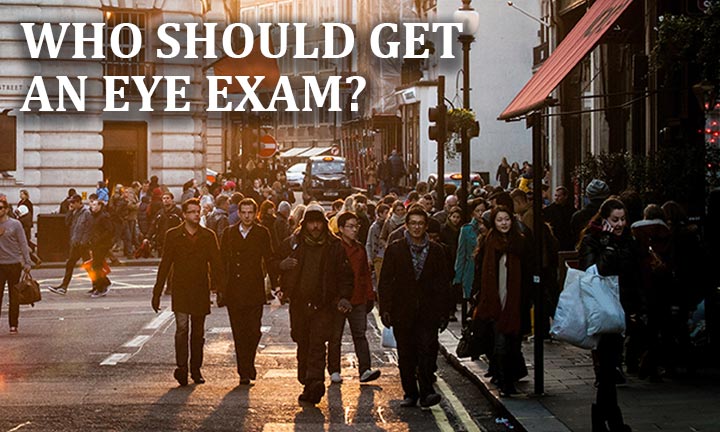
Generally, people who reach the age of 40 are advised to have their eyes examined. It is to this age that symptoms of age-related eye issues begin to occur.
For people who have a family history of eye diseases, diabetes, and high-blood pressure, by the time they reach 30, or even as soon as symptoms are felt, they must visit an eye doctor immediately.
Eye exams are important for children too. For children who went through traumatic eye injuries, the soonest visit to the doctor is important to prevent further damage to the affected eye and its surrounding organs.
For people who are 65 and more, getting an annual eye exam is very helpful in the prevention of eye diseases that are brought by age.
What should I expect during an eye exam?
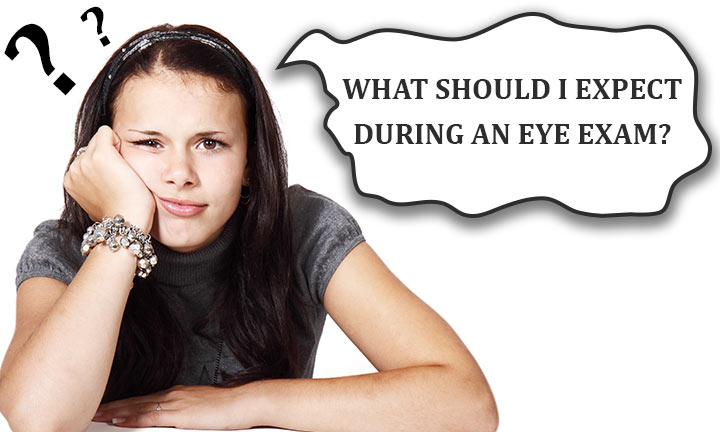
Eye exams are generally painless. Your first eye exam can help your eye doctor determine how frequent your check-ups will be. With this, your age, medical history, family history, and your health habits will be taken into consideration.
You will also be asked about your current eye health. Do you wear glasses or contact lenses? Are you comfortable with what you’re wearing now?
How much do you sleep each day? How long do you spend time on digital devices? These questions, perhaps even more, will be asked when you visit the clinic.
What are the most common types of eye exams?
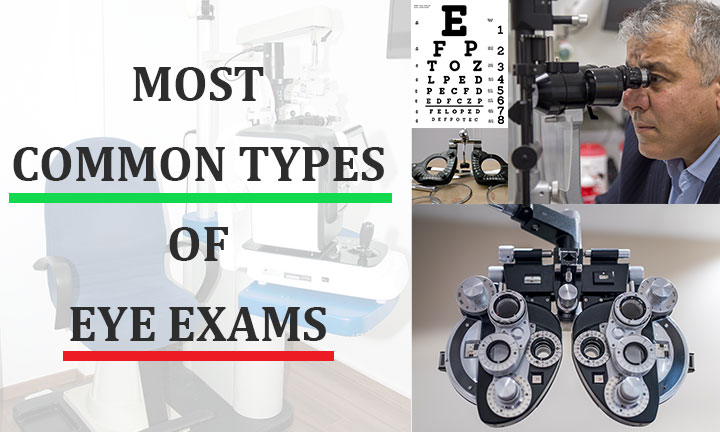
Here’s a guide to eye exams commonly advised by eye doctors:
-
Eye Muscle Test
This type of eye exam will examine the muscles that control the eye movement. The attending eye specialist will observe the movements that your eyes make. After that, the doctor will identify any muscle weakness, dis-coordination, and lack of control.
-
Glaucoma Screening
If you want to know if you have Glaucoma, you will have to go through a Glaucoma screening. Your doctor will begin with measuring the pressure inside your eyes. While you are staring onto a light on a machine, the doctor will blow a small puff of air into your eyes and measure its intraocular pressure.
-
Visual Acuity Test
During a visual acuity test, your doctor will measure the sharpness of your vision. Through this test, you will know how well you see far and near objects.
-
Ocular Ultrasound
Also known as ocular echography, the Ocular Ultrasound helps your doctor verify if you have tumors, cataracts, or bleeding in your eyes.
-
Refraction Assessment
When you need prescription eyeglasses, the doctor conducts a refraction assessment to your eyes. During this test, you will look at a chart from 20 feet away through a tool called a phoropter.
After that, you need to describe the image that you see, whether it is sharp, blurry or something else. This test can help identify if you have hyperopia, myopia, presbyopia, or astigmatism.
-
Visual Field Test (also known as Perimetry)
The main goal of a Visual Field Test is to measure your peripheral vision. Your doctor will make you look at an object in the center of your your line of vision, and as you stare at the target, you will have to identify whether the objects at the side are moving.
In other versions of this test, the appearance of light is used. With the Visual Field Test, your doctor will know if certain conditions such as glaucoma or stroke has affected your vision.
-
Color Vision Testing
Worried if you are color blind? The Color Vision Testing exam will help you know the answer. To identify whether you have problems with identifying a certain color from another, your doctor will show you several multi-colored sheets with dot patterns.
If you can identify shapes, numbers and other patterns, that means that you are not color blind. However, other test are required to confirm whether you are color blind or not.
-
Slit-Lamp Test
With the use of a microscope, a beam of light in the shape of a small slit will be pointed towards your eye during this kind of eye exam.
Your doctor can identify whether you have glaucoma, macular degeneration, dry eyes disease, cataracts, and detached retina.
-
Retinal Exam
As the name suggest, Retinal exam or Retinal Tomography is a test used to examine the retina. This computerized test will give you a detailed view of the retina and its layers.
This eye exam will help your doctor identify whether retina-related diseases or macular degeneration is threatening your eyesight.
Eye Exam Results
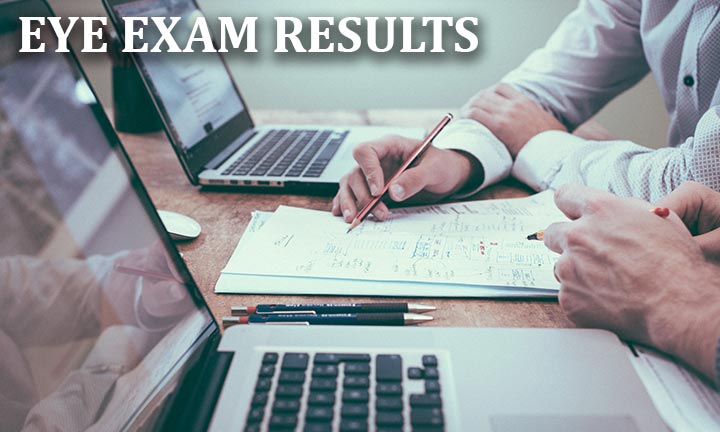
After the examination, your doctor will discuss with you your results and what you can do to about it.
If your results are normal, you will be advised to maintain good habits and avoid those that may lead to premature damage to optical cells or eye stress.
However, if your results show abnormal findings, you will be notified on how to correct any of these. Your doctor will talk with you about the steps that you must take in order to improve your eyesight and correct or prevent vision problems.
One important thing to remember is to be transparent with your doctor. You must let him know any medication that you took or have taken that might have affected your vision.
Let your doctor know of the activities that are directly affecting your vision. And if you are experiencing any of these early signs of eye problems, let your doctor know. Being open will expedite the process of getting your clear vision back.
Final Thoughts
You are responsible for your eyesight and overall eye health. Would you like to see the coming years of your live in vivid wonder?
Keep up the right habits If you do, then make the right decisions now and take the initiative of talking to your doctor about your eyes and its current condition.
REFERENCES:
https://iovs.arvojournals.org/article.aspx?articleid=2166225#90684900
https://www.aao.org/eye-health/tips-prevention/screening
https://www.mayoclinic.org/tests-procedures/eye-exam/about/pac-20384655

Leave a Reply
You must be logged in to post a comment.